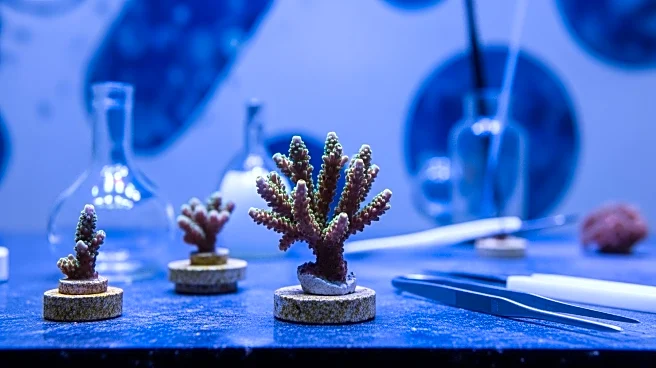What's Happening?
Scientists in the Bay Area are pioneering efforts to regenerate the world's second-largest coral reef by creating baby corals. This initiative is a response to the severe damage inflicted on coral reefs by climate change. The project aims to restore the reef's health and biodiversity, which have been compromised due to rising ocean temperatures and acidification. The scientists are employing advanced techniques to cultivate these corals, hoping to bolster the reef's resilience against environmental stressors.
Why It's Important?
Coral reefs are vital to marine ecosystems, providing habitat and food for a diverse range of species. They also protect coastlines from erosion and contribute to the global economy through tourism and fisheries. The degradation of coral reefs due to climate change poses a significant threat to these benefits. By regenerating the reef, the Bay Area scientists' work could help preserve marine biodiversity and sustain economic activities dependent on healthy reefs. This initiative highlights the importance of innovative solutions in addressing environmental challenges.
What's Next?
The success of this coral regeneration project could lead to similar efforts in other regions affected by coral degradation. If the baby corals thrive, it may encourage further investment in coral restoration technologies and strategies. Stakeholders, including environmental organizations and governments, may increase support for such initiatives, recognizing their potential to mitigate climate change impacts on marine ecosystems.
Beyond the Headlines
This project underscores the ethical responsibility to protect natural resources and the environment. It also raises awareness about the long-term consequences of climate change on biodiversity and the need for proactive measures. The cultural significance of coral reefs to coastal communities may also be preserved through these restoration efforts.









